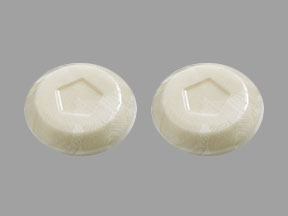Odactra Disease Interactions
There are 7 disease interactions with Odactra (house dust mite allergen extract).
- Asthma
- Eosinophilic esophagitis
- Autoimmune disease
- Bleeding
- Myocardial infarction
- Nephrotic syndrome
- Cardiovascular complications
Allergen immunotherapy (applies to Odactra) asthma
Major Potential Hazard, Moderate plausibility. Applicable conditions: Allergies
The use of allergen immunotherapy, such as mixed grass pollens, ragweed pollen, house dust mite allergen extract, and timothy grass pollen allergen extracts may cause severe allergic reactions such as anaphylaxis and laryngopharyngeal edema. These agents are contraindicated in patients with severe, unstable or uncontrolled asthma, a history of any severe systemic allergic reaction, and a history of any severe local reaction to sublingual allergen immunotherapy as these conditions could compromise breathing and be life-threatening.
Allergen immunotherapy (applies to Odactra) eosinophilic esophagitis
Major Potential Hazard, Moderate plausibility.
The use of allergen immunotherapy, such as mixed grass pollens, ragweed pollen, house dust mite allergen extract, and timothy grass pollen allergen extracts, is contraindicated in patients with a history of eosinophilic esophagitis. This condition could compromise swallowing, lead to food impaction, vomiting, and heartburn which may cause permanent damage to the esophagus.
House dust mite allergen extract (applies to Odactra) autoimmune disease
Major Potential Hazard, Moderate plausibility. Applicable conditions: Autoimmune Disorder
The use of house dust mite allergen extract is contraindicated in patients with autoimmune disease due to the possibility of routine immunizations exacerbating symptoms of the underlying disease.
House dust mite allergen extract (applies to Odactra) bleeding
Major Potential Hazard, Moderate plausibility.
The use of house dust mite allergen extract is contraindicated in patients with diseases characterized by a bleeding diathesis.
House dust mite allergen extract (applies to Odactra) myocardial infarction
Major Potential Hazard, Moderate plausibility. Applicable conditions: History - Myocardial Infarction
The use of house dust mite allergen extract is contraindicated in patients who have experienced a recent myocardial infarction as these patients may not be able to tolerate immunotherapy. The benefit-to-risk ratio must be carefully evaluated before deciding to initiate such treatment.
House dust mite allergen extract (applies to Odactra) nephrotic syndrome
Major Potential Hazard, Moderate plausibility.
The use of house dust mite allergen extract is contraindicated in children with nephrotic syndrome due to a variety of seemingly unrelated events that may cause an exacerbation of nephrotic disease.
Allergen immunotherapy (applies to Odactra) cardiovascular complications
Moderate Potential Hazard, Moderate plausibility. Applicable conditions: Heart Disease, Cardiovascular Disease
The use of allergen immunotherapy, such as mixed grass pollens, ragweed pollen, house dust mite allergen extract, and timothy grass pollen allergen extracts may not be suitable for patients with certain medical conditions that may reduce the ability to survive a serious allergic reaction or increase the risk of adverse reactions after epinephrine administration. Examples of these medical conditions include but are not limited to markedly compromised lung function (either chronic or acute), unstable angina, recent myocardial infarction, significant arrhythmia, and uncontrolled hypertension. It is recommended to exercise care in these patients.
Switch to professional interaction data
Odactra drug interactions
There are 139 drug interactions with Odactra (house dust mite allergen extract).
Odactra alcohol/food interactions
There is 1 alcohol/food interaction with Odactra (house dust mite allergen extract).
More about Odactra (house dust mite allergen extract)
- Odactra consumer information
- Check interactions
- Compare alternatives
- Pricing & coupons
- Drug images
- Side effects
- Dosage information
- FDA approval history
- Drug class: allergenics
- En español
Related treatment guides
Drug Interaction Classification
| Highly clinically significant. Avoid combinations; the risk of the interaction outweighs the benefit. | |
| Moderately clinically significant. Usually avoid combinations; use it only under special circumstances. | |
| Minimally clinically significant. Minimize risk; assess risk and consider an alternative drug, take steps to circumvent the interaction risk and/or institute a monitoring plan. | |
| No interaction information available. |
See also:
Further information
Always consult your healthcare provider to ensure the information displayed on this page applies to your personal circumstances.


